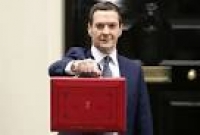
George Osborne was delivering his seventh Budget. Chancellor George Osborne surprised everyone by vowing to introduce a "national living wage" of £9 an hour by 2020 in the first Tory budget since 1996. This caught parliament by surprise. The Living Wage is still lower than that of Scotland has currently.
The chancellor scrapped student grants, froze benefits and cut billions from tax credits and other welfare payments.
The Chancellor is spreading the £12bn in welfare cuts promised in the Conservative election manifesto over three instead of two years. This was one welcome surprise.
Housing benefit for most people aged under 21.
Mr Osborne made much of low wage, high tax, high welfare economy; to the higher wage, lower tax, lower welfare country he said he intend to create".
However low productivity has been a by-product of the decline in wages.
The Chancellor downgraded growth forecast for the UK this year, of 2.4%, and pushed back the date at which public finances would move into surplus to 2019/20.
Measures announced in the Budget statement include:
An increase in the inheritance tax threshold to £1m for married couples by 2017. Nice if you happen to be well off.
Working-age benefits to be frozen for four years - including tax credits and local housing allowance, but excluding maternity pay and disability benefits. This will see a reduction in the real value of benefits.
Maintenance grants for students - paid to students with family incomes below £42,000 - to be scrapped and converted into loans from 2016/17. For students from poorer families this is not good news.
Corporation tax cut to 18% by 2020
Fuel duties frozen for the remainder of this year
A fresh clampdown on public sector pay, which will be limited will to 1% a year for the next four years
Pensions tax annual allowance to be tapered away to a minimum of £10,000 from next year
New cars and motorbikes will not need MOTs for the first four years, rather than three
Mr Osborne announced that the £26,000 benefit cap - the amount one household can claim in a year - would be cut to £23,000 in London and £20,000 in the rest of the country. This again will make life hard for those on benefits as inflation erodes the real value of benefits.
The government will also make local authority and housing association tenants in England who earn more than £30,000 - or £40,000 in London - pay up to the market rent, but rents in the social housing sector will be reduced by 1% a year for the next four years.
Mr Osborne confirmed that the BBC has agreed to absorb the £650m cost of providing free television licences for over-75s. Councils in England and Wales are likely to be allowed to relax Sunday trading laws.
The chancellor unveiled "just under half" of the £37bn in cuts he says are needed to clear the deficit by 2018, with £12bn from the welfare budget and £5bn from a crackdown on tax avoidance. The remainder of the savings will come from cuts to government departments to be announced in the autumn.
Mr Osborne said the UK economy today was "fundamentally stronger than it was five years ago", with living standards rising strongly.
'Smoother path'
He said higher tax receipts meant he could implement a "smoother" path to recording a surplus in the government finances, but stressed that he would not back away from tackling the deficit.
"You only have to look at the crisis unfolding in Greece as I speak to realise that if a country's not in control of its borrowing, the borrowing takes control of the country," Mr Osborne said.
"Britain still spends too much, borrows too much, and our weak productivity shows we don't train enough or build enough or invest enough." The UK's productivity is very low and there has been little in this budget to tackle this problem. There was nothing in the budget about promoting R&D and innovation.
In summary, further cutting of the welfares state but a surprise move in the introduction of the Living Wage. Less harsh on the welfare state than was expected but again a Chancellor intending to shrink if not eventually destroy the welfare state.
Cutting tax credits but not increasing productivity and wages, will create more in work poverty.
Source Guardian and the BBC
Leave a comment
Make sure you enter all the required information, indicated by an asterisk (*). HTML code is not allowed.
Join
FREE
Here










